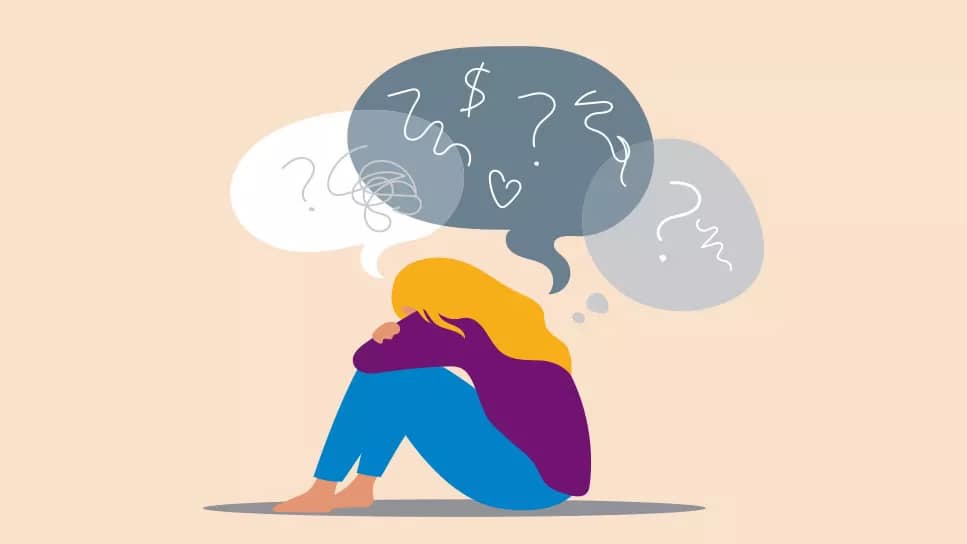In today’s fast-paced world, anxiety has become an all-too-common companion for many of us. Whether it’s the pressure to meet deadlines, financial worries, or simply the constant buzz of social media, feelings of unease can creep into our lives without warning. While occasional stress is normal, chronic anxiety can be debilitating if left unchecked. In this post, we’ll explore what anxiety is, its causes, how it affects us, and most importantly, strategies to manage it effectively.
What Is Anxiety?
Anxiety is more than just feeling stressed or worried—it’s a natural response to perceived threats or challenges. When faced with danger (real or imagined), your body activates its “fight-or-flight” mechanism, releasing hormones like adrenaline and cortisol that prepare you to either confront the threat or flee from it.
For some people, however, this response becomes exaggerated or persistent, even when there’s no immediate threat present. This is when anxiety transitions from being a helpful survival tool to a mental health concern. Common symptoms include:
- Racing thoughts
- Rapid heartbeat
- Sweating or trembling
- Difficulty concentrating
- Restlessness or irritability
- Sleep disturbances
If these symptoms interfere with daily life, they may indicate an anxiety disorder, such as generalized anxiety disorder (GAD), panic disorder, social anxiety, or specific phobias.
What Causes Anxiety?
The roots of anxiety are complex and multifaceted. They often stem from a combination of biological, psychological, and environmental factors:
- Genetics: Some individuals are predisposed to anxiety due to their family history.
- Brain Chemistry: Imbalances in neurotransmitters like serotonin and dopamine can contribute to anxious feelings.
- Life Experiences: Trauma, major life changes, or prolonged periods of stress can trigger anxiety.
- Personality Traits: People who tend to be perfectionists or highly self-critical may experience higher levels of anxiety.
- Environmental Factors: High-pressure environments, toxic relationships, or societal expectations can exacerbate feelings of overwhelm.
How Does Anxiety Affect Us?
When anxiety takes hold, it doesn’t just impact our minds—it reverberates throughout our bodies and lives. Physically, it can lead to headaches, digestive issues, muscle tension, and fatigue. Emotionally, it can leave us feeling drained, disconnected, or trapped in a cycle of negative thinking. Over time, untreated anxiety can also increase the risk of developing other conditions, such as depression or substance abuse.
On a broader scale, anxiety can hinder personal growth and relationships. It might prevent someone from pursuing opportunities, speaking up in meetings, or connecting deeply with loved ones. The ripple effects are profound, but the good news is that anxiety is manageable with the right tools and support.
Strategies for Managing Anxiety
While professional help—such as therapy or medication—is essential for severe cases, there are several practical steps anyone can take to reduce anxiety and cultivate calm:
1. Practice Mindfulness
Mindfulness involves staying present in the moment rather than getting lost in worries about the future or regrets about the past. Techniques like meditation, deep breathing exercises, or yoga can help ground you and quiet racing thoughts.
2. Establish Healthy Habits
Taking care of your physical health can significantly improve your mental well-being. Prioritize regular exercise, balanced nutrition, and adequate sleep. Even small changes, like going for a walk or drinking more water, can make a big difference.
3. Challenge Negative Thoughts
Cognitive-behavioral techniques encourage identifying and reframing irrational or unhelpful thoughts. For example, instead of thinking, “I’ll never get this done,” try reframing it as, “This task feels challenging, but I’ll tackle it one step at a time.”
4. Set Boundaries
Learn to say “no” when necessary and set limits on activities or commitments that drain your energy. Protecting your time and space allows you to focus on what truly matters.
5. Connect with Others
Talking to trusted friends, family members, or support groups can provide comfort and perspective. Sometimes, simply sharing your struggles can lighten the emotional load.
6. Limit Stimulants
Caffeine, alcohol, and nicotine can amplify feelings of anxiety. Reducing or eliminating these substances can help stabilize your mood.
7. Seek Professional Help
If anxiety feels overwhelming or persistent, don’t hesitate to reach out to a therapist or counselor. Cognitive-behavioral therapy (CBT), exposure therapy, and medications like SSRIs have proven effective for managing anxiety disorders.
Embracing Imperfection
One of the most powerful ways to combat anxiety is by embracing imperfection. Society often pressures us to achieve unrealistic standards, but true peace comes from accepting ourselves—and our limitations—with compassion. Remember, it’s okay not to have everything figured out. Progress, not perfection, should be the goal.
Final Thoughts
Anxiety is a universal human experience, but it doesn’t have to define your life. By understanding its origins and implementing healthy coping mechanisms, you can regain control and find moments of calm amidst the chaos. Be patient with yourself; healing is a journey, not a destination.
If you’re struggling, know that you’re not alone. Millions of people face similar battles every day, and reaching out for help is a sign of strength, not weakness. Together, let’s create a culture of openness and resilience—one where anxiety is met with understanding and hope.
What strategies have helped you manage anxiety? Share your thoughts in the comments below—we’d love to hear from you!
Discover more from Pasindu Lakshan Perera
Subscribe to get the latest posts sent to your email.




